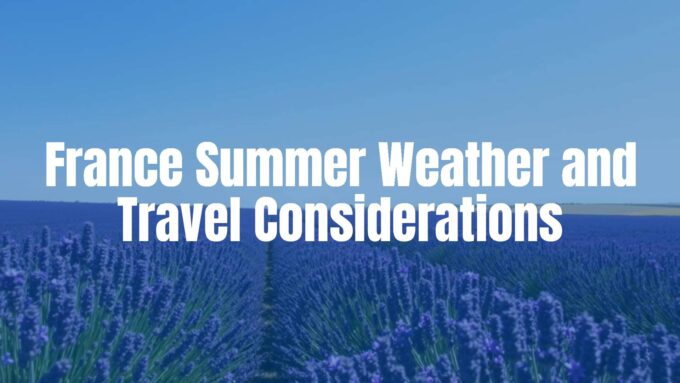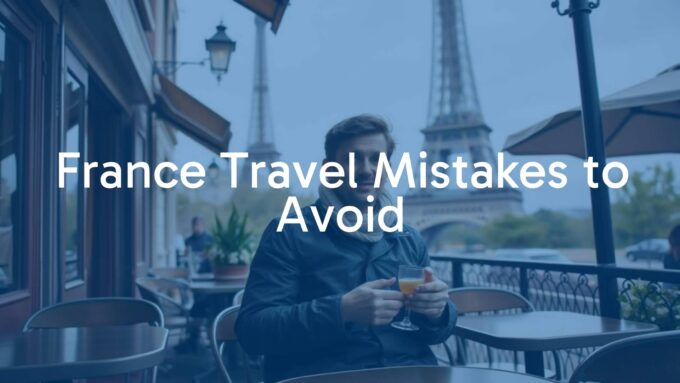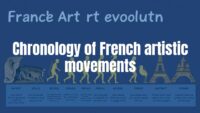Can you enjoy France without spending a fortune? Yes. While France, and Paris in particular, often brings to mind fancy hotels and Michelin-star meals, the country has many low-cost choices for smart travelers. With a bit of planning and some flexibility, you can taste great wines, see old castles, wander pretty villages, and enjoy good food without huge bills. This guide shows you how to visit France on a small budget and still have a trip to remember.
What makes France appealing for budget travel?
France’s coasts, valleys, countryside, and big cities give you lots of variety. The long history means you’ll find ruins, castles, and cathedrals all over the country, many of which are free or cheap to see. Beyond the famous sights, you’ll find lively culture, great wine, and tasty food that you can enjoy without overspending. People often think France is always pricey, but there are many ways to travel smart and keep costs down.
Many of the best parts of France-trying local food and wine, driving or taking trains through the countryside, or simply walking around beautiful towns-cost little or nothing. The charm of everyday life is a big part of the appeal, and it often doesn’t need a ticket. With smart planning, you can experience real French life and often find more memorable moments than those who stick to expensive, tourist-heavy spots.
Key attractions for budget travelers
Even the most famous French sights can fit a small budget. In Paris, you can enjoy the Eiffel Tower from the Champ de Mars or the Jardins du Trocadéro for free-night views are especially lovely. Many museums, including the Louvre, have free entry on the first Sunday of each month, which is great for art lovers on a budget. Explore the Latin Quarter’s narrow streets and squares, or visit Montmartre and the free-to-enter Sacré-Cœur basilica for sweeping city views.
Outside Paris, there are plenty of low-cost gems. Nice, on the French Riviera, is a solid pick for sun without the high prices of Cannes or Monaco, and it’s a handy base for day trips. In the Loire Valley, famous for vineyards and chateaus, you can picnic in scenic spots and admire some chateaus from outside for free. Lyon, a UNESCO World Heritage city with a lively jazz scene, and Bordeaux, known for wine and grand buildings, offer lots to do without constant spending.

Misconceptions about traveling France on a budget
A common myth is that budget travel in France means giving up quality or authenticity. In fact, by choosing markets over upscale restaurants, hostels over luxury hotels, and public transport over private cars, many travelers end up seeing daily French life more clearly. Another myth is that France is always pricier than other parts of Europe. While it may be more than some Eastern European countries, it’s roughly similar to Italy or England and cheaper than Switzerland or Scandinavia.
Many “France is expensive” stories come from poor planning. Examples: visiting only Paris, or traveling in peak season when flights and hotels are at their highest. By staying flexible with dates and places, using picnic culture, and ordering prix-fixe menus, you can cut costs a lot and find that France is friendlier to small budgets than you might expect.
Average daily costs for budget travelers in France
Knowing typical daily costs helps you plan your trip and your money. Prices change by season, region, and travel style, but this outline will help you set a target. France has options for backpackers and midrange travelers alike.
| Item | Typical cost |
|---|---|
| Hostel dorm | 40-75 EUR per night |
| Budget hotel | 85-150 EUR per night |
| Casual meal | 20-35 EUR |
| City transport ticket | 1-3 EUR |
| Museum entry | Free-20 EUR |
Backpackers can aim for about 80 EUR per day. That covers a hostel dorm, simple meals or market lunches, public transport, little to no drinking, and mostly free activities. If you want more comfort, plan around 175 EUR per day for a private room, more meals out, a few drinks, occasional taxis, and some paid attractions or tours. Luxury travel can go well over 400 EUR per day.
Accommodation
Places to stay take up a large part of the budget, but choices are wide. Hostel dorms: 40-75 EUR per night; private hostel rooms: 100-150 EUR. Budget hotels: 85-150 EUR. Airbnb private rooms: 45-90 EUR; entire apartments: 75-225 EUR. Campsites: around 25 EUR (wild camping is illegal).
Prices can jump 30-50% in peak summer. Book early, especially for Paris. Stay in less touristy areas or other cities to save. Families can often get a better deal with a double room with two beds instead of a triple, and apartments with kitchens are great value for groups of four or more.
Food and groceries
You can eat well without spending much. A market lunch with bread, cheese, and cured meats costs about 10-15 EUR. Pre-made sandwiches run 6-12 EUR. Casual restaurants charge around 20-35 EUR per meal, while “nicer” places are about 50 EUR. Look for prix-fixe menus: 2-3 courses for about 20 EUR at lunch and 35-50 EUR at dinner.
To cut costs, cook some meals if you have a kitchen. A week of groceries can be 45-60 EUR. Local markets are fun and cheap for fresh produce. A glass of wine often costs less than a soda: wine 3-6 EUR, beer 6-7 EUR. Bottled water is 1-2 EUR, and tap water is safe, so bring a reusable bottle.
Transportation
France has a wide, reliable public transport system. City tickets are usually 1-3 EUR. In Paris, a single metro ride is 2.50 EUR, and a one-day pass is 12 EUR. The RER from Charles de Gaulle to Paris is 13 EUR.
For travel between cities, buses are usually cheapest. Flixbus offers Paris-Marseille (10 hours) for 20-35 EUR and Paris-Bordeaux (7.5 hours) from about 18 EUR. Trains are faster and more comfortable but can cost more, especially high-speed TGV tickets bought late. Book early for deals like Paris-Nice from 38 EUR in second class. Rideshares like BlaBlaCar are another cheap and often fun way to move between cities.
Sightseeing and activities
Costs vary a lot by interest. Many great experiences-walking old towns, enjoying parks, or taking in views-are free. Museum tickets range from free to about 20 EUR. Many museums and city sights are free on the first Sunday each month, which is a great chance to save.
If you plan to see several paid sights, look at city passes like the Paris Museum Pass (52 EUR for two days) or the Lyon City Card. These can bundle discounts and sometimes include public transport. Guided tours can add up (a full-day D-Day tour is around 150 EUR), but many cities have free walking tours (tip-based). Focus on what you really want to see and use free options where possible to keep costs low.
Sample budget breakdowns
Here are two sample daily budgets for one traveler:
Backpacker Budget (approx. 80 EUR/day):
- Accommodation: Hostel dorm (40-50 EUR)
- Food: Bakery breakfast (5 EUR), picnic lunch (10 EUR), simple dinner (15 EUR) = 30 EUR
- Transportation: City transit (5 EUR)
- Activities: Free walking tour, parks, architecture (5 EUR for an occasional ticket or a coffee)
- Miscellaneous: 0-5 EUR
This budget needs a careful approach with lots of free activities and self-catering. It suits travelers who like low-cost, local experiences.
Midrange Budget (approx. 175 EUR/day):
- Accommodation: Private room in hostel/budget hotel/Airbnb (80-100 EUR)
- Food: Bakery breakfast (5 EUR), casual lunch (15-20 EUR), dinner at a bistro with prix-fixe menu (35-40 EUR) = 55-65 EUR
- Transportation: Day pass or occasional taxi (10-15 EUR)
- Activities: 1-2 paid sights or a guided tour (20-30 EUR)
- Miscellaneous: 5-10 EUR
This budget gives more comfort and variety, with more meals out and more paid sights. Adjust based on your own choices and trade-offs.
Budget-friendly itinerary tips for France
Building a plan that balances curiosity and cost takes some simple planning. France is diverse, and you can shape your trip to be rich in experiences while keeping spending low. The key is often when you go, where you go, and how you group your stops.
Dates matter a lot. Avoiding peak season helps almost everywhere, and France is no different. Picking cheaper regions and planning routes that cut travel time and costs can also lower your total spend.
When to travel for the lowest prices
Timing can save you a lot. Peak season (June-August) brings big crowds and high prices for flights, rooms, and some sights. Summer temperatures are 16-24°C (61-75°F) on average, hotter in the south. Many businesses outside major tourist areas close in August for holidays.
The shoulder seasons-April to May and September to October-are great for small budgets. Weather is pleasant, crowds are smaller, and prices for flights and rooms are much lower. Many say this is the best time to visit France. If you don’t mind cooler days, winter (November-February) is the quietest and cheapest, especially in cities like Paris. It can be cold and rainy, but you’ll find Christmas markets, and it’s a good time for museums and cafes, with the lowest airfares and room rates.
Cheap destinations and regions in France
Paris can be pricey, but many other cities and regions offer lots to see without Paris prices. Rennes, Lille, and Nantes have deep history, lively culture, and charm for less. These places give a real French feel away from crowds.
Brittany, the Loire Valley, and the Auvergne have beautiful scenery, old villages, and affordable stays. Nice is not the cheapest city, but it’s a better-value base for the Riviera than Cannes or Monte Carlo. Renting a car can open up cheap stays in the countryside and bring you closer to local life. Even in Provence, renting a house outside high season can be a good deal.
Suggested routes to maximize value
Group nearby stops to save time and money. If you fly into Paris, spend a few days enjoying low-cost sights, then head to a cheaper area. A short train ride takes you to Chartres, a handy base for Loire Valley chateaus without Paris hotel prices. Use Nice as a hub to day-trip by train to pricier Riviera towns like Monaco or Cannes, then return to your more affordable base.
If you want to see the countryside, a short car rental can be cost-effective for small towns that are hard to reach by train or bus. For example, pair Bordeaux with drives through nearby wine areas, or explore the D-Day beaches in Normandy by car. Try to limit long, expensive rides and plan groups of activities by area.
Group travel and discount options
Traveling with others can bring big savings, especially on lodging. Renting an apartment or gîte often costs less per person than multiple hotel rooms. Many rentals have kitchens, so you can cook and cut food costs. Some train deals, like SNCF’s Mini-Groupe tickets, give discounts for five to nine people traveling together with a Saturday night stay.
Beyond group deals, students, youth, and seniors (60+) often get free or reduced entry to sights with ID. The ISIC card gives wide discounts for travelers under 26. City passes can bundle museums and transport. Watch for airline and train sales, especially in shoulder or off-season. Booking early usually gets the lowest prices.
Low-cost ways to get to and around France
Transport can eat into your budget fast, but France offers many cheap ways to move around. Be flexible and shop around. From budget airlines to strong public transit, you’ll find options for most trips and budgets.
The transport network makes it easy to move between regions and inside cities without a car. Convenience can cost more, but slower or less direct routes, plus early bookings, can save a lot.
Cheapest flights to France
You don’t have to spend big to fly to France. Paris CDG is the largest airport, but it can be pricier. Try Paris Orly or regional airports like Marseille or Nice, especially if you plan to stay in the south. Inside Europe, budget airlines like EasyJet and Ryanair often have very low fares.
To get the best deals, book at least a month ahead. During shoulder seasons, one-way flights within France can be 25-35 EUR. For international flights, booking on a Sunday can be cheaper than Friday, and flying out on a Thursday can also help. Use tools like Skyscanner and Expedia’s Flight Deals to compare prices. Budget airlines often charge for checked bags, so pack light if you can.
Budget train tickets and passes
SNCF runs regular trains and the high-speed TGV. Buying late can be costly, but early bookings can be much cheaper. Paris-Nice might be 70-150 EUR at the last minute, but early fares can be 38 EUR in second class. Look for “Prem’s” deals online or at stations, including “100% Prem’s” for last-minute weekend trips.
If you’ll be moving around a lot, a Eurail Pass might fit, giving a set number of travel days in a time window. For short hops or day trips, point-to-point tickets are often cheaper. Travelers under 26 can get good discounts. Trainline is handy for finding routes and comparing prices.
Affordable bus and coach options
Buses are usually the cheapest way to go long distances. Flixbus, Eurolines, Isilines, and Ouibus cover many routes at low prices. Paris-Marseille (10 hours) can cost 20-35 EUR, and Paris-Bordeaux starts around 18 EUR.
Buses take longer than trains, but the savings are big. Flixbus often has Wi-Fi, power outlets, and a free checked bag. Use BusBud to compare routes and prices. Trains are usually more comfortable, but buses are the budget pick.
Rideshares and carpooling
BlaBlaCar is a popular, cheap way to ride between cities by sharing gas costs with local drivers. It’s a good choice if your schedule is flexible, as rides can change.
If you want your own wheels, car rentals start around 30 EUR per day for multi-day rentals. Most companies require drivers to be 21+ with a credit card. Discover Cars can help you find good rates. For trips of a month or more with lots of driving, a lease buyback (like Autoeurope with Peugeot) can be cost-effective. Hitchhiking is generally safe for some travelers, but it needs flexibility and a neat appearance.
Public transport in major cities
City transport is wide-reaching and usually better than taxis or rentals. Paris, Lyon, Marseille, and Bordeaux have strong metro, tram, and bus systems. Single tickets are 1-3 EUR. In Paris, a metro ride is 2.50 EUR and day passes (ParisVisite) start at 12 EUR and cover metro, bus, tram, and RER.
The Bonjour RATP app lets you buy digital tickets and see live updates for Paris transport. Vélib’ bike stations are everywhere in Paris: single rides cost 3 EUR and 24-hour passes for classic bikes are 5 EUR. Citymapper helps plan routes with time and price estimates.
Finding affordable places to stay in France
Accommodation can take a big slice of your budget, but France has many cheap and comfortable options. From hostels to guesthouses and camping, knowing where to look can help you find value stays and keep more euros for activities.
Saving often comes from booking smart, being flexible with location, and choosing places with kitchens to cut food costs.
Hostels and budget hotels
Hostels are a solid pick, especially in big cities. Dorm beds are 40-75 EUR per night and offer a social vibe. Many hostels have private rooms for 100-150 EUR. Hostelworld is a good site for finding and booking hostels.
If you want privacy, budget hotels run 85-150 EUR per night. Rooms can be small but are comfortable. Booking.com often has low rates and many choices. Hotels just outside the center can be cheaper and still close to transit.
Vacation rentals, apartments, and guesthouses
Airbnb and Vrbo are great for apartments or private rooms, especially for longer stays or groups. Private rooms are 45-90 EUR; entire apartments 75-225 EUR. Kitchens help you save by cooking some meals, which is fun with France’s markets.
Guesthouses (“chambres d’hôtes”) offer a personal touch and often include breakfast. Expect 50-150 EUR for a double room, especially in rural areas and small towns. Logis (2,300+ hotel-restaurants) often lists small inns with good food. Half-board deals at Logis can be good value if you plan to eat there.
Campsites and unique stays
Camping can be cheap, social, and comfy. Campsites are about 25 EUR. Campgrounds have star ratings, and many four-star sites have more services than some three-star hotels. Wild camping is illegal, but official sites are common and well kept.
For a local touch, try Couchsurfing to stay with hosts for free. You’ll save money and learn from locals. “Bienvenue à la Ferme” farms offer camping, farmhouse rooms, and sometimes meals made from their own produce-a tasty pick for food lovers.
Tips for saving on accommodation
- Book early, especially for Paris or peak times; prices rise close to the date.
- Be flexible with dates; Sunday and Monday nights are often cheaper than weekends.
- Stay outside the busiest areas; in Paris, spots like Bastille or Belleville can be better value than landmark-heavy districts.
- Use hotel points if you have them.
- For families, self-catering places are often cheaper than multiple hotel rooms.
- Compare prices across sites and contact small properties directly for possible better deals.
How to eat well in France without overspending
France is great for food, and you don’t need a huge budget to enjoy it. The trick is to eat like locals do, find simple spots, and make smart choices so you can taste real French flavors without paying too much.
From markets to bakeries and bistros, good and affordable food is easy to find if you know where to look. Simple, high-quality ingredients in relaxed places are the core of the food scene here.
Street food, bakeries, and markets
Street food, bakeries (boulangeries), and markets are fun and cheap. Skip hotel breakfasts and head to a bakery for a fresh baguette, croissant, or pain au chocolat-often just a few euros. Many bakeries also serve coffee.
For lunch, markets are perfect. Pick up fruit and veg, local cheese, charcuterie, and a bottle of wine for a picnic around 10 EUR. In cities, food trucks and stalls sell crêpes, falafel, and local snacks. Try socca in Nice or flammekueche in Alsace.

Affordable restaurant options and prix fixe menus
Look for “prix fixe” or “la formule.” These set menus (usually 2-3 courses) are cheaper than ordering à la carte. Lunch menus are the best value around 20 EUR; dinner is often 35-50 EUR. Some include a drink.
To sample fine dining for less, have your main meal at lunch. Many high-end places, even Michelin-starred ones, offer lower lunch prices. In Paris, look for “bouillons,” classic restaurants with low prices-mains from about 13 EUR and a small pitcher of wine for 12 EUR.
Picnics and self-catering
France is perfect for picnics, with parks, rivers, and countryside galore. Visit a market for a baguette, Camembert, fruit, and a bottle of local wine, then eat by the Seine or near a Loire chateau. You’ll enjoy great food and views for little money.
If your place has a kitchen, use it. A week of groceries can be 45-60 EUR and cover several meals. Make breakfast and dinner at home and treat yourself to a special lunch. Even a small fridge helps you keep picnic supplies handy.
How to save on groceries and drinks
Shop at markets and supermarkets. Chains like Carrefour, Intermarché, Leclerc, and Super U sell good wine at low prices-often far cheaper than abroad. You can get a nice bottle for about 3 EUR. For very cheap wine, visit a wine co-op and fill your own container (en vrac) for 2-4 EUR per liter.
At restaurants, ask for “une carafe d’eau” (tap water) for free. Carry a reusable bottle to refill at fountains or your stay. Avoid buying snacks near major sights-prices are high. Stock up at supermarkets or bakeries instead.
Free and cheap things to see and do in France
France offers many low-cost and free experiences, showing that rich travel doesn’t need big spending. From historic buildings to natural beauty, plenty is open to all without a fee.
By focusing on free sights, using special free days, and spending time outdoors, you can fill your days with great moments while keeping costs down. Look beyond ticket lines and enjoy daily life scenes.
Top free attractions in Paris and beyond
In Paris, enjoy free views and spaces: walk along the Seine, see the Eiffel Tower from the Champ de Mars or Trocadéro, and relax in parks like Jardin du Luxembourg and Parc de la Villette. The Sacré-Cœur in Montmartre is free and offers wide city views. Explore the Latin Quarter and the Marais. The Maison de Victor Hugo is a free museum in the writer’s former home.
Outside Paris, many towns invite free wandering through old centers and lanes. Mont Saint-Michel is worth a visit even without paying for the abbey. Admire Loire chateaus from outside, or see Roman ruins in Nîmes and Arles from the streets. The D-Day beaches in Normandy, with memorials and bunkers, are moving and free to visit.
Museums with free or reduced entry
Many museums charge, but there are smart ways to visit. Most national museums and monuments offer free entry on the first Sunday of the month, including the Louvre, Musée d’Orsay, and Centre Pompidou. Plan around those days to save. Also, many smaller museums have free days or lower rates; check websites before you go.
Students, people under 26, and seniors (often 60+) often get free or discounted entry with ID. The Paris Museum Pass covers 50+ museums and monuments and can be a deal if you’ll visit at least three. Try smaller museums like Musée Gustave Moreau for a quieter, cheaper visit than the Louvre.
Outdoor activities and nature spots
France’s landscapes offer endless free fun: hikes in national parks, coastal walks, and vineyard trails. Near Bordeaux, the Dune de Pyla, Europe’s largest sand dune, gives amazing views-best at sunrise or sunset. In summer, the Alps are great for hiking if winter skiing is too pricey.
Cities have lovely gardens and parks for rest and people-watching. Try Nice’s Promenade du Paillon or Paris’s Palais-Royal gardens. Walking cities is a highlight in itself-discover markets, rivers, and historic areas at your own pace. On hot days, swimming in the Seine (now allowed in certain zones in Paris) adds a free summer activity.
Festivals and events on a budget
France hosts many events year-round, and plenty are free or low-cost. Bastille Day (July 14) brings big parades and fireworks, especially in Paris. Cinema en Plein Air, a free outdoor film series at Parc de la Villette in Paris during July and August, is popular-bring your own snacks and wine. Many towns hold markets, fairs, and religious events that show local culture for free.
In winter, Christmas markets light up cities like Paris and Strasbourg. While food and some shows cost money, the lights and atmosphere are free. Check local tourist office websites for event calendars during your dates.
Self-guided walking tours
Self-guided walks let you explore at your own pace for free. Many tourist offices offer printed maps or audioguide apps. You can also find routes online or make your own in any neighborhood that interests you.
These walks help you learn more about local history and architecture without paying for a guide. Spend hours in Paris’s Latin Quarter, Nice’s old town, or Bordeaux’s grand streets. This approach builds a closer bond with the place and leaves room for surprises.
Money-saving passes, discounts, and local hacks
Big savings often come from city cards, age-based discounts, and simple local tips. These can cut costs on transport and sights and help you do more with less.
From city passes to smart booking habits, a little homework can stretch your budget. Picking up a few local habits also helps you save and feel more connected to daily life.
City passes and discount cards
Many cities sell passes that bundle museum entries and attractions, often with unlimited public transport. These can be cheaper than buying single tickets. The Paris Museum Pass covers 50+ museums and monuments; a two-day pass costs 70 EUR (Nomadic Matt lists a two-day pass at 52 EUR). The Lyon City Card gives free entry to 23 museums and includes transit.
Before you buy, make sure the pass covers the places on your list. If you’ll visit only one or two sights, single tickets may be cheaper. Regional passes, like the Côte d’Azur Card or Bordeaux Métropole CityPass, work the same way. Check online or ask at tourist offices for current details and prices.
Student, youth, and senior savings
France is friendly to students, youth (often under 26), and seniors (often 60+). Carry ID to get free or reduced entry at many sights and sometimes on transport. The ISIC (International Student Identity Card) unlocks many discounts for those under 26.
SNCF’s Carte Avantage Senior costs 49 EUR and gives 30% off train trips year-round and 60% off tickets for up to three children traveling with the pass holder. It also offers free exchanges and refunds up to three days before departure. Always ask about discounts-even if you don’t see signs.
Booking in advance and flexibility tips
Booking flights, trains, and stays early is one of the best ways to save in France. Popular routes and hotels get more expensive as the date gets closer. Book flights months ahead when you can, grab “Prem’s” train tickets as soon as they appear, and lock in rooms early-peak season rates can be 30-50% higher at the last minute.
Being flexible helps too. Fly mid-week instead of weekends. Stay Sunday or Monday nights for lower hotel prices. Aim for shoulder seasons (April-May, September-October) or save and avoid crowds. If you can, visit smaller cities and regions for a more local feel at a lower price than big-name hubs.
How to stay safe and comfortable during budget travel in France
France is generally very safe, and traveling on a budget doesn’t mean risking safety or comfort. A bit of prep and awareness can keep your trip smooth and enjoyable. Even with tight spending, your well-being comes first.
Know the risks, learn a few local habits, and have a plan for problems. These steps help your trip run well no matter your budget.
Health, travel insurance, and scams to avoid
Violent crime is rare, but pickpockets and scams target busy areas and public transport in cities like Paris and Marseille. Keep valuables out of sight. Common scams include fake petitions asking for donations, the “lost ring” trick, and street card games.
Use indoor ATMs at banks when possible and watch for skimmers. If you rent a car, don’t leave valuables inside, especially near the Spanish border or near D-Day sites in Normandy. Buy travel insurance to protect against illness, injury, theft, and cancellations. For emergencies, call 112.
Travel etiquette and cultural tips
Learn a few basics to make daily life smoother. Politeness matters: greet with “Bonjour” or “Bonsoir” and “Madame/Monsieur” before asking for anything. “S’il vous plaît” and “Merci” go a long way.
Meals are relaxed and unhurried. If you buy a drink at a cafe, you can usually keep the table as long as you like. Service is included, so tipping is not required, but leaving a small extra for great service is common. Protests and strikes happen; they are usually orderly but can disrupt transport, so check local news.
Resources for planning your France budget trip
Planning a budget trip is easier with the right tools. From cheap flights to affordable rooms and local transport, a few websites and apps can help you make smart choices and get the best value.
Using these platforms-and advice from other travelers-can save time and money, so you can focus on enjoying France.
Recommended apps and websites
- Skyscanner: Finds deals on flights, including budget carriers many sites miss.
- Hostelworld: The main site for hostels, with lots of dorms and private rooms.
- Booking.com: Big selection of hotels, apartments, and guesthouses at good prices.
- BusBud: Compares intercity bus routes and fares across operators like Flixbus.
- Trainline: Handy for train schedules and tickets in France and Europe.
- BlaBlaCar: Ridesharing with local drivers for cheaper intercity trips.
- Citymapper: Clear public transport routes, live info, and price estimates in major cities.
- Bonjour RATP: Official Paris transport app for digital tickets and service updates.
- HitchWiki: If you plan to hitchhike, this site has tips and info.
- Discover Cars: Helps compare car rental prices for day trips.
- Rome2Rio: Compares routes and costs by bus, train, plane, or car between any two points.
- Get Your Guide: Large marketplace for tours, from cooking classes to walks.
- SafetyWing: Flexible travel insurance, useful for long trips and digital nomads.
- LifeStraw: Reusable water bottles with filters for safe drinking on the go.
Useful booking platforms
These broader platforms also help budget travelers:
- Booking.com: Strong for all accommodation types with solid filters and deals.
- Hostelworld: Best for finding and booking hostels.
- Airbnb/Vrbo: Good for groups or anyone who wants a kitchen to cook.
- SNCF Connect: Official app for French trains to book and manage trips.
- Expedia: Good for flights and packages, with price drop features on some fares.
Further reading and community forums
For deeper tips and current advice, try these:
- Travel Blogs and Guides: Many writers share budget routes and advice, often by region or city.
- Lonely Planet and Rick Steves Guidebooks: Paid guides with practical tips, sample itineraries, and budget ideas. Rick Steves is known for wallet-friendly picks.
- Online Travel Forums and Facebook Groups: Ask questions and get real-time advice in France budget travel groups.
- The Man in Seat 61: Great source on train routes, times, prices, and conditions worldwide.
- Official Tourist Office Websites: Often offer free walking maps, event listings, and info on passes and discounts.













Leave a comment